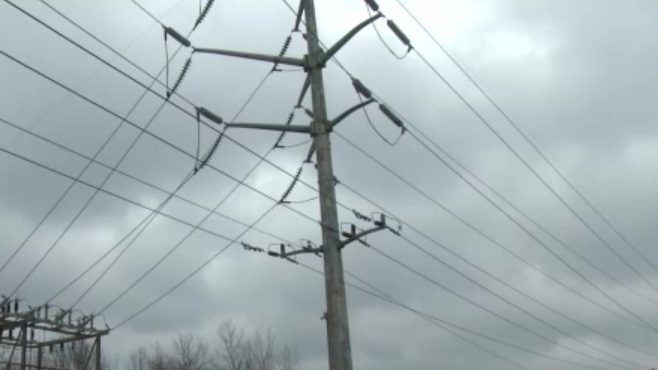The Maine Public Utilities Commission fined Versant Power $90,000 for what the commission says was a violation of customer service standards in 2023.
In its ruling, issued last week, the three-member commission denied the utility company’s Feb. 29 request to exclude customer service data collected from Dec. 19-22, 2023.
Versant argued that the utility’s customer service department was overwhelmed in those days following the Dec. 18 winter storm that battered the state and left thousands of customers in the dark.
In a brief hearing on the subject on Oct. 8 the commission’s chairperson, Philip L. Bartlett II, said he didn’t agree.
“In my view, Versant has not demonstrated good cause or extraordinary circumstances that would warrant an exemption,” he said.
Versant serves about 165,000 customers in northern and eastern Maine. The company, along with fellow electrical utility Central Maine Power, agreed in the past to certain customer service benchmarks as part of rate-setting agreements with the commission.
Versant agreed to answer customer phone calls within 30 seconds, according to documents from the commission. But both CMP and Versant convinced the commission in the past to allow for exemptions on severe weather days, arguing that storms, and the damage they will cause, are impossible to predict perfectly, and the utilities should not be held responsible for not meeting the benchmark on those days.
The commission agreed, and did in fact exclude data from Dec. 18 for Versant, as that was the day the winter storm hit. Versant, however, has argued that the impact of the storm on their offices extended for the next four days.
Versant Power Spokesperson Judy Long reiterated the utility’s case, spelled out in commission documents.
“We were on track to meet our “calls answered” metrics before the major storm that occurred on December 18, 2023, one of the most significant we have seen in decades,” Long said. “At the peak of the storm, Versant had more than 97,000 customers without power, and President Biden issued a Major Disaster Declaration. This was not an event that Versant could predict or control. Between December 18 and 22, the average number of incoming calls to Versant was approximately five times higher than for the rest of year.”
The commission grades each utility monthly and annually based on how often the utilities meet the 30-second benchmark. Measured in a percentage, Versant is required to be compliant 80% of the time or better in a year.
For 2023, Versant received a grade of 77.5% but, the utility argued, it would be just above 80% if those four days were not considered.
Bartlett and the commission’s written decision both noted that Versant had not just missed the 30-second benchmark during the week of the Dec. 18 storm. In fact, the commission’s data showed, Versant scored poorly on the benchmark for five months in 2023 – April, July, August, September and October.
“This suggests to me that there’s something structurally amiss, rather than a single anomalous event throwing a metric out of whack,” he said.
Commissioner Patrick Scully, at the same Oct. 8 meeting, also noted that exemptions are based on power outages reported on the day in question, and that Versant had agreed to this standard in the past.
“Effectively, in making the argument, what they’re asking us to do is to amend the rule, and/or amend the stipulation,” he said.



